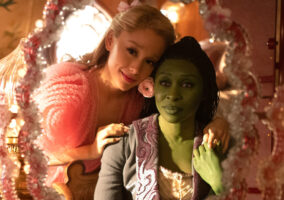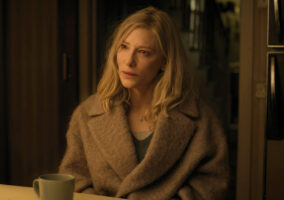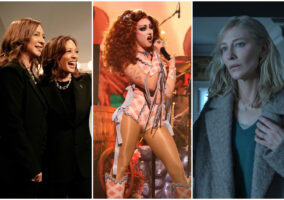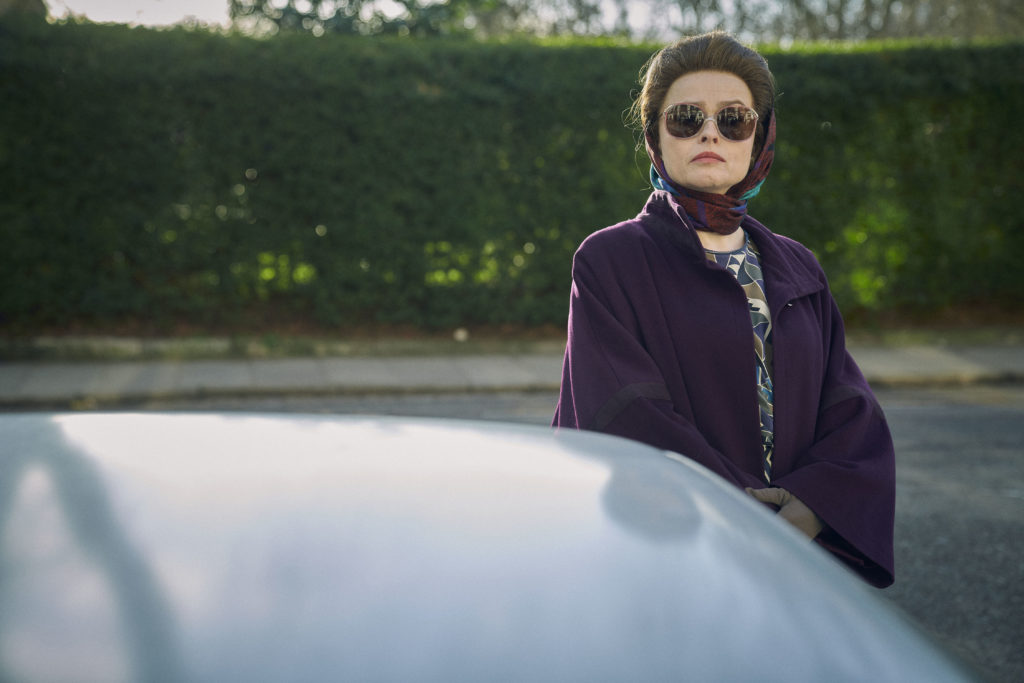
The Crown returns to two of its favorite subjects – the skeletons in the royal family’s closets and Princess Margaret’s life-long misery – and gives Helena Bonham Carter her Emmy reel submission in one of the sadder episodes of the season.
We’ve noted before that part of the problem of producing a TV series about the long lives of famous people is that you don’t have much room to convey character growth and you often wind up repeating the same themes and scenes over and over again. Generally speaking, people don’t change and grow as much as your average fiction piece would indicate, so we have been treated to reiteration after reiteration of the same character ideas since the first episode. Elizabeth is emotionally removed, Charles is awkward and petulant, Philip is an asshole and Princess Margaret is a sad, jealous, bitter person who’s ruining her health with bad habits. When Margaret pleaded with Elizabeth this episode to put her to work, we have to admit, our first reaction was “We’re here again?” But the strength of Helena Bonham Carter’s performance and the overwhelming tragedy of her Bowes-Lyons cousins gave the usual “Margaret resents being ignored” story a bit more weight to it.
Writer and Executive Producer Peter Morgan seems quite a bit more willing to make the family look terrible this season and now that it’s all played out, we think we might have been on the receiving end of a rather brilliantly executed Breaking Bad sort of character turn which had been planned all along. While the show has depicted most of the characters in some sort of bad light each season, there was always a sense that we were watching stories of flawed people who were surprisingly easy to root for – even the Nazi sympathizers got a fairly sympathetic storyline. For the last three seasons we actively wondered how he was going to treat the decade of the 1980s, because there’s no real way to depict that tumultuous era in the family without bringing the whole lot of them in for some serious criticism. We just didn’t expect him to go so hard. All of the main characters have had entire hours of storytime devoted to sympathetic examinations of their lives and roles over the seasons, but several of them, to our shock, have moments this season where they come off downright loathsome. We don’t believe there’s ever been a more damning portrayal of the Queen Mother than the one we were treated to this episode.
But first, let’s talk about Aunt Margot. As we said, you don’t have much choice but to return to the same themes and stories when telling a long-form version of someone’s life; especially if you’re talking about someone who was tightly bound by the circumstances of her birth for the entirety of it. Margaret the character will simply never achieve her goals or get what she feels she wants out of life because that’s not how things played out for Margaret the person. There’s not much value in repeating scenes of her drunkenness and partying at her villa, except to reiterate a point that’s been made many times over in the story. It’s to Helena Bonham Carter’s credit that she can continue finding depths, but she was really helped out by a script that married her lifelong feelings of being left out to the scandalous institutionalization of her cousins. Sure, we had to deal with a therapist with some highly dicey ethics, some scenes of the developmentally disabled that felt uncomfortably exploitive on the show’s part – and of course, they had to go and insert Charles into the story because his marriage drama is the main arc of the season (you’d never know Margaret had adult children by this point) – but tying these two elements of the family history together gave Margaret’s constant complaining greater weight and gave Helena Bonham Carter some of her best scenes in the series.
What made the return to these themes more enjoyable this time is the off-the-charts chemistry between Olivia Colman and Helena Bonham Carter. They truly feel like middle-aged sisters, with all the built-up resentments and short-hand understanding of each other that comes with that status. Do we believe that the Queen knows and understands the slang term “Friend of Dorothy?” In the words of Princess Anne, “Not bloody likely,” but that lunch scene discussing Margaret’s doomed love life was a cute respite in the middle of all the drama. Margaret complains about how she has found happiness “elusive,” and Elizabeth suggests a “a good brisk walk,” to solve her problems.
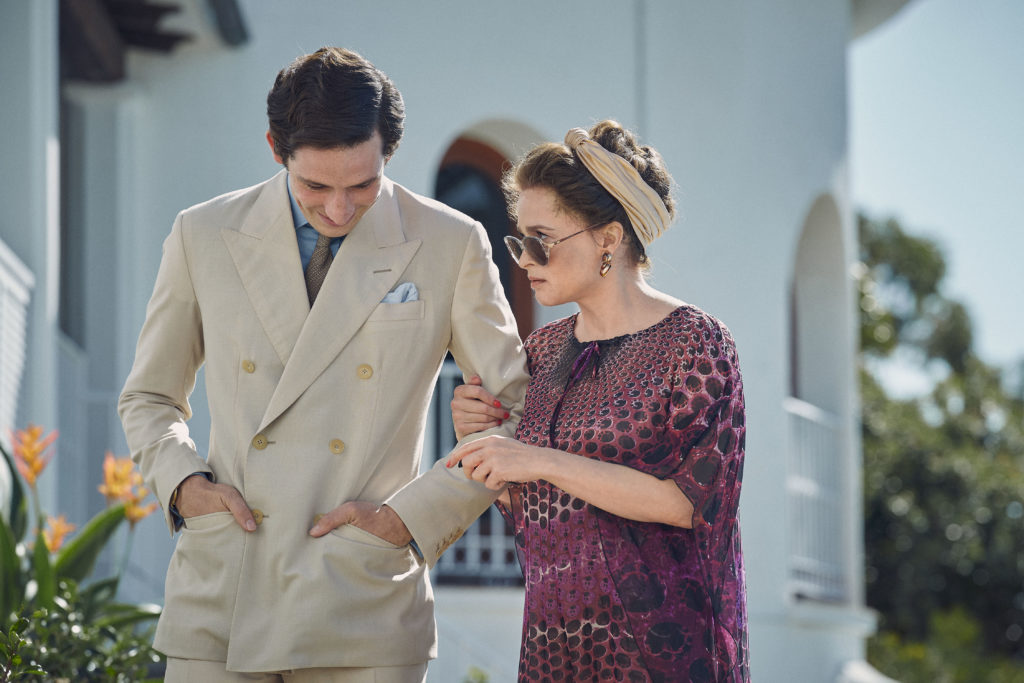
It doesn’t seem particularly likely that Margaret would have been caught unaware that her status as Counsellor of State to the Queen would be revoked as Elizabeth’s children came of age, but the show tends to do this sort of thing a lot in order to give elements of the real story more dramatic heft. We’re reminded of the scene a few episodes back where the Queen was surprised to hear that a victory parade was being held in London that very day. There’s simply no chance these characters are surprised or unsettled by these revelations because they almost certainly weren’t revelations. Still, it’s the kind of conceit you have to accept with such a fictionalized portrayal of history. In this case, it not only tied up Margaret’s storyline in a bow, but it gave us yet another scene of the royal family in which they come off like right weirdos. Prince Philip making jokes in his birthday toast to Prince Edward about the circumstances of his conception was another of those increasingly common moments where the show doesn’t tell you what to think about them; it just shows you how completely abnormal they are as a family.
Which brings us to the Queen Mother. Margaret stomps off to Castle Mey (the rundown castle the QM bought in season one when she felt shoved aside by her family) to confront her mother and we’re treated to some of the most appalling dialogue to come out of any family member’s mouth for the entirety of the series. “Not everything that is wrong with this family can be explained away by the abdication!” Margaret rightly – and FINALLY – says to her mother when she starts off with that old excuse. “The idea that one family alone has an automatic birthright to the crown is already so hard to justify” the Queen Mother retorts, trying to explain the institutionalization and erasing of whole branches of the family. “The gene pool of that family better have 100 percent purity,” adding “Their professionally diagnosed idiocy and imbecility would make people question the integrity of the bloodline.” YIKES ON TOAST. Margaret is appalled by how horrifyingly Nazi her mother sounds and The Crown serves up the most damning argument against this outmoded institution it may ever have the nerve to mount. They’re a family of emotionally stunted weirdos with no understanding of the world, holding onto their status at all costs because they simply know no other way to live. But because of the nature of the story, you can’t have the characters express too much self-awareness or suggest a defiance that never actually came to pass. In typical self-pitying Windsor manner (and with typical anvil-heavy dialogue), Margaret likens the lifelong institutionalization and banishment of family members to “the cruelty I myself have experienced in this family,” but she doesn’t abandon her role or turn her back on her family. Instead, she tragically clings even tighter to them. When her friend Dazzle tries to suggest changing her life to find more happiness, she angrily responds that her title and her proximity to the crown “is my happiness!” The episode ends the only way it can if it wants to be remotely accurate: no changes are made, no growth is achieved. Margaret goes back to Mustique and a life of empty partying, facing a future of diminishing health and importance.
Yea or Nay: Valentino Rose Metallic Nappa Sandal Next Post:
American Music Awards 2020: Jennifer Lopez in Balmain
Please review our Community Guidelines before posting a comment. Thank you!

